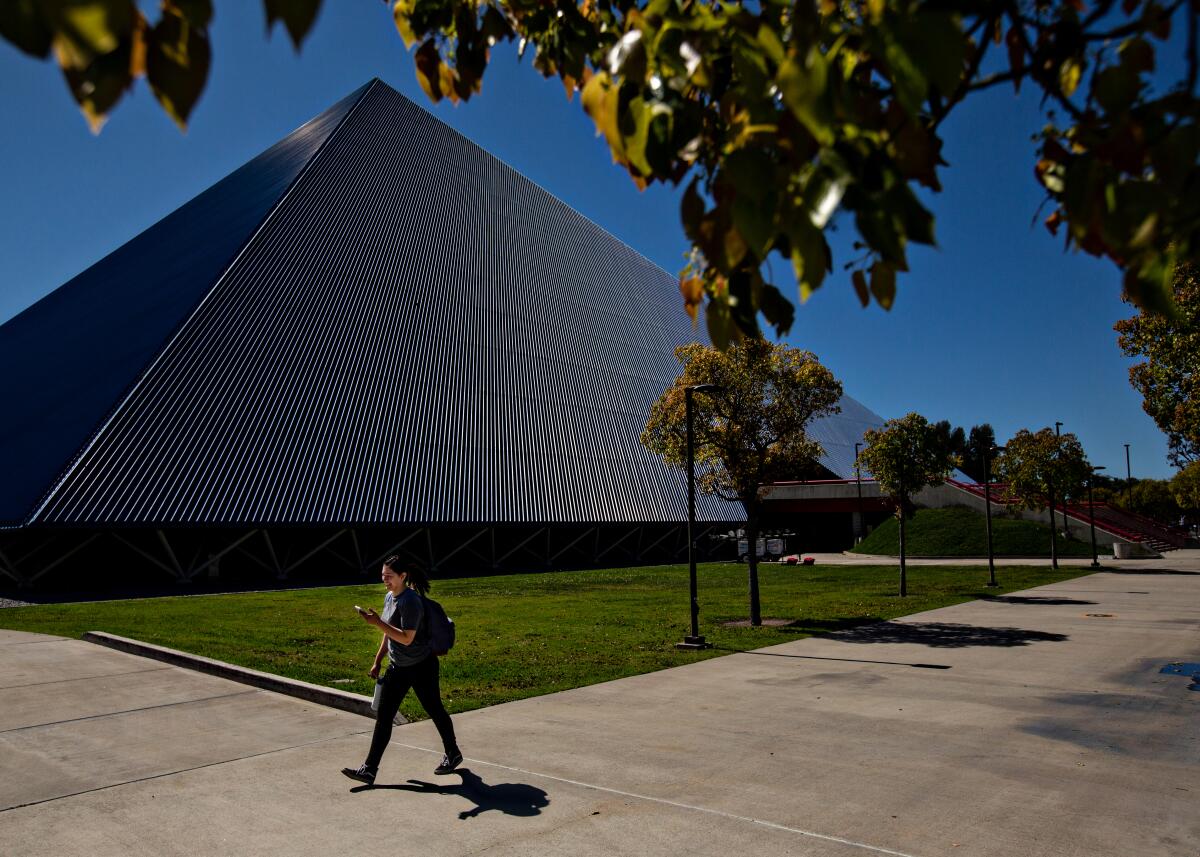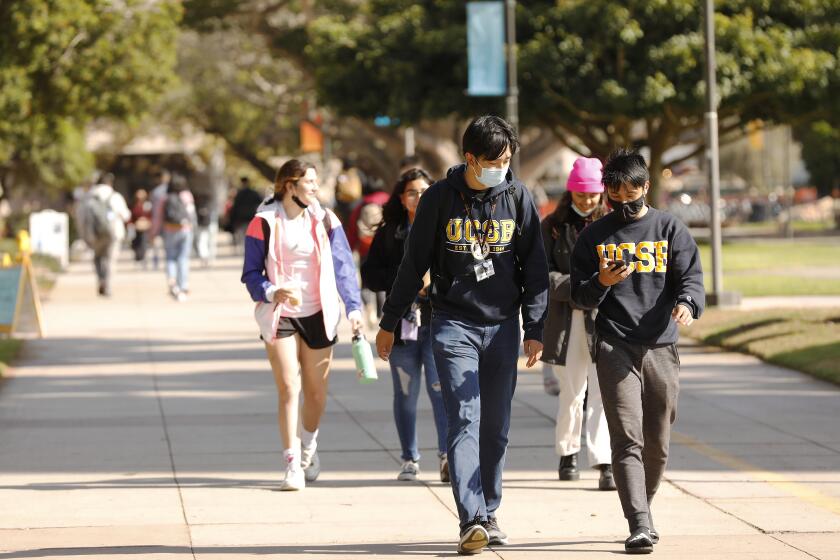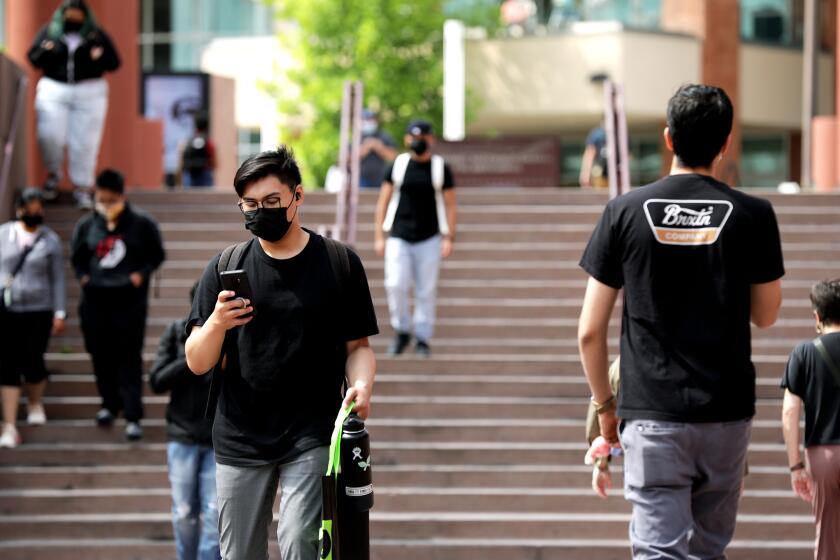Cal State Long Beach joins growing number of colleges to delay in-person classes

Cal State Long Beach on Thursday joined a growing number of California universities and community colleges delaying in-person classes and moving online amid a worsening Omicron surge.
Long Beach plans to operate primarily online for its first three weeks starting Jan. 20. At least eight other California State University campuses in the 23-campus system have announced delays to in-person classes.
Cal State Los Angeles announced its decision to go remote for the first three weeks of the semester earlier this week. San Diego State, Sacramento State, Cal State Channel Islands, Fresno State, Cal State East Bay, Cal State San Marcos and San Francisco State have also announced a remote start, while Cal State Fullerton is currently deliberating its plans.
A number of community colleges, throughout the state, including Pasadena City College, will also move classes online for the first two weeks of its semester, while others retain a mostly hybrid schedule.
Cal State officials previously hoped that a late-January semester start date would be enough time to escape the latest surge. No changes in guidance for the 23 campuses have come from Chancellor Joseph Castro’s office, but spokesperson Toni Molle said Castro has been meeting regularly with university presidents to discuss the situation. Castro previously told The Times that university presidents have the authority to make changes to reopening policies based on local conditions.
Cal State L.A. is the latest California college to announce that it is going online for the start of the new semester.
At Long Beach, the campus will remain open and services such as the University Student Union, University Library, Student Health Services will continue to be available to students.
“The safety of our community has always been our chief concern throughout the pandemic. Delayed in-person instruction was not what we had intended for this spring, but the rise of the Omicron variant warrants this adjustment. Among the lessons of the pandemic is continued flexibility, and we will monitor prevailing conditions and public health recommendations over the coming weeks,” university President Jane Close Conoley wrote to the community.
All 23 Cal State campuses will require booster shots for students by the end of February.
California Faculty Assn. President Charles Toombs supported the remote starts.
“We’ve been hearing from so many different public health officials about how easily transmissible and spreadable Omicron is. We’ve also been hearing about a shortage of COVID tests,” he said. “Faculty want to be back in the classroom, but we need to do that without putting our students, faculty, staff, families and communities at risk.”
If the temporary delay to in-person classes is extended, Toombs said he believes faculty will be prepared after the experience of online classes last academic year.
Cal State Student Assn. President Isaac Alferos said student leaders are supportive of the remote start, as many called on campus officials to consider a virtual start to the semester start to reduce risk of infection. Cal State system previously announced a COVID-19 booster mandate, which Alferos said is a priority.
“It is critical that campus leaders across the system work with their student leaders to ensure an equitable rollout that centers our students first and foremost,” he said.
Eight of the nine University of California campuses previously announced a remote start to classes, which for most began this week. UC Berkeley, which is one of two UC campuses on a semester schedule, has not indicated a change to its in-person plans for next week.
Already, UC students have wondered if the temporary delay will expand as hospitalizations and cases continue to grow, with student leaders calling on university officials to communicate any updates to plans early.
More to Read
Sign up for Essential California
The most important California stories and recommendations in your inbox every morning.
You may occasionally receive promotional content from the Los Angeles Times.













